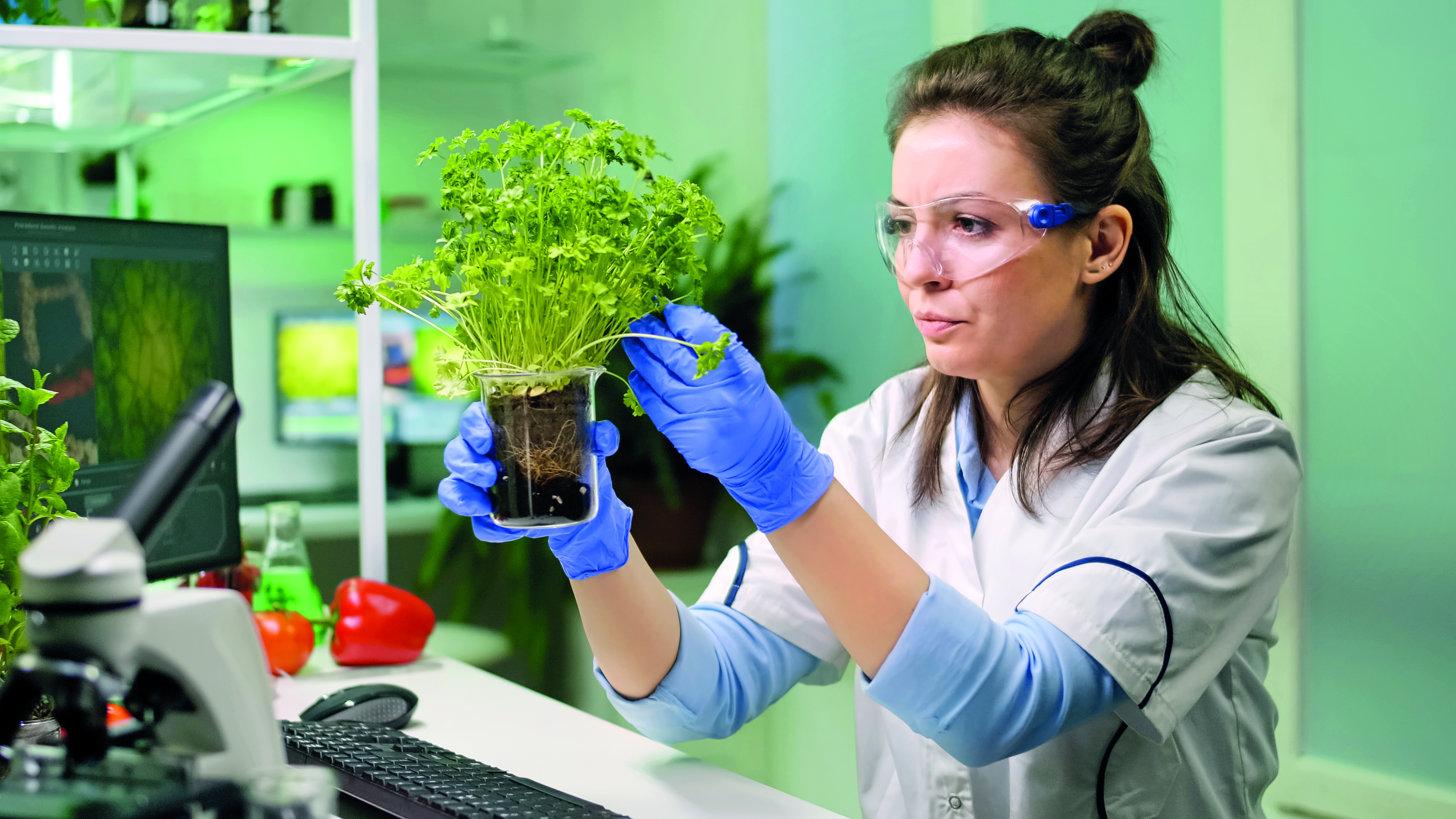Green Revolution
Amidst the urgent challenges of global warming and climate change, businesses worldwide are rapidly adopting eco-conscious strategies. This has led to a surge in exciting career options focused on a sustainable future

Like most Indian parents, Rishav Gupta’s guardians, too, wanted him to pursue engineering or medicine. However, Gupta ventured onto a less conventional path, attaining a master’s degree in Environmental Science, followed by MBA in Sustainable Development Management. Today, Gupta works as a landscape architect with a leading real estate firm in India. He is responsible for designing, planning and managing the outdoor and indoor spaces for a diverse range of projects.
Given the urgent challenges posed by global warming and climate change, businesses worldwide are embracing an eco-conscious approach by integrating eco-friendly practices to reduce their carbon footprint. From hotels, governmental structures to office complexes, the demand for green buildings that adhere to sustainable norms has become imperative. Rainwater harvesting, sewage treatment, solar-powered lighting, efficient waste management, solar energy utilisation, and the promotion of e-vehicles are pivotal components of this burgeoning global trend. As more businesses adopt the green initiative, a plethora of new career opportunities aimed at securing a sustainable future have come up.
Those interested can go for a bachelor, master, or doctoral degree in sustainability or a related field. From conservation specialist, environmental science and protection technician who can work at government agencies, hospitals, and community groups, ecologist, environmental consultant, geoscientist, environmental health and safety analyst, environmental engineer to urban planner and air quality engineer, the career options in sustainability are manifold. Also, every major corporate player has separate environment management and sustainability department. Today, under Corporate Social Responsibility (CSR), there is an increasing demand for professionals specialised in natural resources management and sustainable development.
“Courses in sustainable development equip you with the interdisciplinary skills and insights that can lead to sustainable transformation in your business, sector and society at large. You garner the expertise to critically assess the international development sector and scrutinise current systems and solutions like net zero, the circular economy, the UN’s Sustainable Development Goals (SDGs) and the biodiversity protocols proposed at COP26 to cite a few examples. Such courses help you gain practical skills and apply academic concepts to real-world challenges, thus empowering you to make a tangible impact at a local or global level,” said Debaroopa Bhattacharyya of ethnic clothing brand Ummaira, who holds a special interest in sustainability.
As someone who has been working in India’s handloom industry for a very long time, Bhattacharyya emphasises on green economy. “One of the key concepts of sustainable development is the green economy, which means an economic system that reduces environmental risks and ecological scarcities while enhancing human well-being and social equity. A green economy can foster innovation, create jobs, and improve resource efficiency,” she said.
According to Havard Business Review, sustainability is a relatively new field and it is expanding. “Businesses are reacting by creating new roles focused on developing ESG-friendly practices and solutions in every function. Since these roles are new to everyone, the playing field is even. Both junior and senior employees can land them,” mentioned Havard Business Review.
In fact, the best part about jobs in the sustainability field is “variety”. So, what if you have pursued engineering or fashion technology, you can land roles in companies having sustainability goals related to your path. You can nurture your area of expertise with various training and certificate courses both online and offline. The certifications not only enhance your knowledge but also make you a standout to your recruiters, granting you a distinctive edge in the competitive landscape.
“Sustainable development is becoming an emerging area of study because as time progresses, the resources we need to survive on the planet and the resources that the planet needs to survive are depleting at a rate exponentially faster than it is replenishing,” said Matrika Bhandari, co-founder, Inkriti, a sustainable fashion brand. The alumnus of the Royal College of Art, London also mentioned how there are ample options in the field of sustainable development today. “From rural development to material science, there’s endless scope. Not just this, but the research and development going on to recycle and upcycle textile waste have a wide scope of opportunities. During my master’s at the Royal College of Art, I was researching combining textile and fabric waste with bioplastics for new material development and understanding its usability and functionality,” she said.
Bhandari also mentioned that in the field of textiles, various sustainable development practices are being implemented and researched. “From using textile waste to create bricks and pavement, to incorporating indigenous farming techniques to grow the textiles crop, the scope in sustainability is huge,” she said.
Indian Institute of Social Welfare and Business Management (IISWBM) has a two-year MBA in Public Systems with specialisation in energy management/ environment management/ health care & hospital management/ transportation and logistics management. There’s also a certificate course on Sustainable Environment Management, which equips a participant to solve problems in the environmental sustainability field at the source rather than through end-of-pipe. From corporate professionals, environmental auditors, urban and town planners, NGO representatives to village panchayat officials and students, all can benefit from the course.
“In the last 5-10 years, there’s an increasing demand for sustainable management courses. This is primarily because every industry now commits to sustainability. Businesses across the world need to adhere to Sustainable Development Goals (SDGs). Also, when you are doing business, you need to do the Life Cycle Assessment (LCA) of a product, which measures the environmental impacts of a product or service. We have learned our lessons from plastic waste, so LCA is important to ensure global warming and ozone depletion of any product. Therefore, today a student with a sustainable management degree has ample opportunities in MNCs and other sectors,” said Dr KM Agarwal, HOD, MBA Public Systems, IISWBM.



